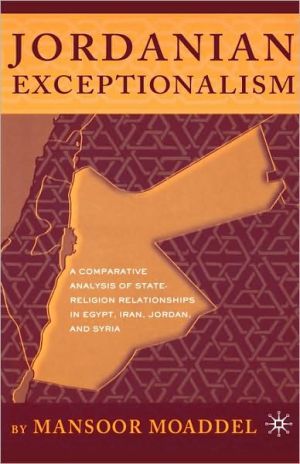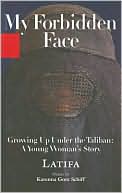Jordanian Exceptionalism
The history of the Islamic movement in Jordan displays glaring contrasts with its counterparts like Egypt, Iran, and Syria. In a marked departure from the frequent and bloody confrontations that have characterized Islamic opposition in these countries, the Jordanian Muslim Brothers have been nonviolent and often defended the state vis-à-vis the challenges of radical ideologies. This book explains the state-religion relationship in Jordan in terms of ideology, politics, class formation, and...
Search in google:
The history of the 20th-century Islamic movement in Jordan, which has been relatively peaceful, is compared with similar movements in other Mideastern countries in an effort to determine the reasons and context for Jordan's differences. The author discusses various aspects of the state, secularization, and the politicization of religion and then focuses on the formation of the Jordanian state, the rise of social classes, and the organization of Muslims in Jordan, and how Jordan's experiences can be compared with developments in Egypt, Iran, and Syria. Appendices discuss the Jordanian National Charter and the Muslim Brotherhood's 1997 election boycott, and reprint a 1999 letter from King Hussein to Prince Hassan. Moaddel (Eastern Michigan University) is the co-editor of Contemporary Debates in Islam (Palgrave, 2000). Annotation c. Book News, Inc., Portland, OR (booknews.com)
Introduction: The Cohabitation of the State and Muslim Brothers • The Formation of the Hashemite Kingdom of Jordan: The Contrasting Cases -- A. The Iranian State Under the Pahlavis and the Shi’I Revolutionary Movement -- B. The Genesis of the Syrian State, the Rise of the Ba’thists, and the Islamic Reaction • Class Formation: The Rise of the Landowners and Merchants: The Contrasting Cases -- A. The Politics of the Baazar in Iran -- B. The Decline of the Urban Notables under the Ba’th • The Society of the Muslim Brothers in Jordan – Democratization: A New Discursive Framework; The Brotherhood: Appeal to the Shari’a, Appeal to the Electorate; Political Pluralism and the MB’s • Conclusions: Intellectual Contexts and Religious Outcomes








